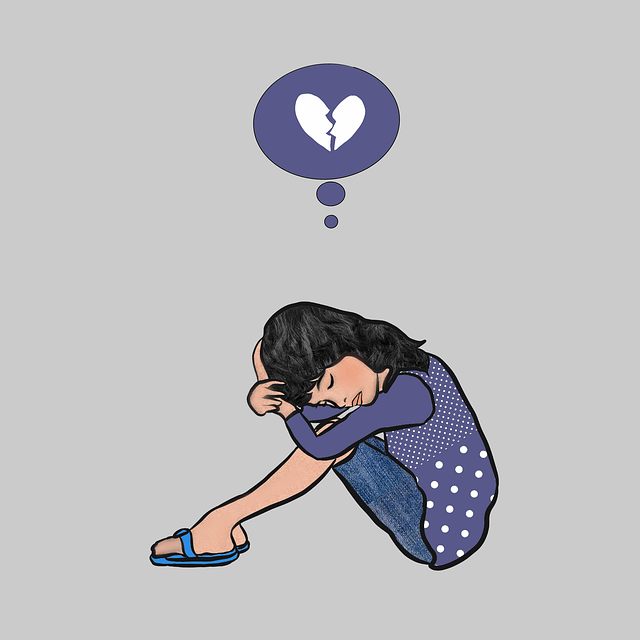Oregon's civil commitment process for mental health is a multi-step, legally governed framework designed to balance individual rights and public safety. It begins when a qualified professional believes an individual poses a risk due to serious mental illness, leading to an application to the court. The process involves assessment, petition filing, a court hearing within 72 hours, and a judge's decision. This systematic approach ensures due process, fairness, and timely interventions while protecting both individuals and the community. Understanding these stages, including post-commitment rights and support services, is crucial for navigating Oregon's legal commitment process successfully.
“Oregon’s civil commitment process offers a comprehensive framework for supporting individuals with serious mental health conditions. This guide delves into the intricate steps involved in the mental health commitment process in Oregon, providing a detailed procedural map. From understanding the legal foundation to navigating court hearings and post-commitment support, each stage is elucidated. For those considering or affected by this process, this resource offers valuable insights into the commitment procedures in Oregon, ensuring informed decisions and rights protection.”
- Understanding Oregon's Legal Framework for Civil Commitments
- Initiating the Process: When and How to Petition for Commitment
- The Mental Health Commitment Evaluation and Assessment
- Court Involvement and Hearing Procedures
- Post-Commitment: Rights, Support, and Potential Discharge
Understanding Oregon's Legal Framework for Civil Commitments

Oregon’s legal framework for civil commitments is a multi-step process designed to balance individual rights with public safety. The state has established clear guidelines outlining the mental health commitment steps, providing a procedural guide for those involved in Oregon’s commitment process. This system ensures that individuals facing potential civil commitment receive due process while allowing for timely interventions when necessary.
Understanding the commitment process in Oregon involves familiarizing oneself with several stages. It begins with an assessment by qualified professionals who determine if an individual meets the criteria for commitment. If warranted, a petition is filed, initiating legal proceedings. This is followed by a court hearing where evidence is presented, and a judge makes a final decision on the matter. Each step is crucial in ensuring fairness while managing potential risks to public safety.
Initiating the Process: When and How to Petition for Commitment

In Oregon, the civil commitment process is initiated when an individual’s mental health status poses a risk to themselves or others, and they are unable to accept treatment voluntarily. The first step for family members or caregivers is to recognize the need for help and understand the legal framework surrounding civil commitments. They can then begin by reaching out to local mental health professionals who can assess the individual and provide necessary documentation.
To petition for a mental health commitment in Oregon, several procedural steps must be followed. This typically involves filing a petition with the court, which includes detailed information about the individual’s condition, treatment options, and reasons for commitment. A hearing is then scheduled where evidence is presented to determine if the person meets the legal criteria for civil commitment. Understanding these stages is crucial for anyone navigating Oregon’s legal commitment process, ensuring that all necessary steps are taken to protect both the individual in need and their rights.
The Mental Health Commitment Evaluation and Assessment

In Oregon, the Mental Health Commitment Evaluation and Assessment is a crucial step within the civil commitment process. It’s a multi-faceted approach designed to understand an individual’s mental health status and their need for involuntary treatment. This involves a comprehensive assessment by qualified healthcare professionals who evaluate symptoms, diagnose any co-occurring disorders, and consider the person’s capacity to make informed decisions about their care. The evaluation considers various factors, including the individual’s history, current behavior, and potential risks to themselves or others.
This procedural guide outlines the steps involved in Oregon’s legal commitment process, ensuring clarity for all parties concerned. It’s important to understand each stage of the civil commitment process in Oregon to ensure due process rights are maintained. The evaluation serves as a foundation for determining whether an individual meets the legal criteria for involuntary treatment, balancing their right to autonomy with the need for specialized care.
Court Involvement and Hearing Procedures

In Oregon, the civil commitment process for mental health involves a series of structured steps guided by strict legal procedures. It begins with an application from a qualified professional, typically a physician or psychiatrist, who believes an individual poses a danger to themselves or others due to a serious mental illness. This application is then presented to a judge, who reviews it and determines if there’s probable cause to initiate the commitment process. If probable cause is established, the court schedules a hearing within 72 hours to further evaluate the individual’s condition.
The hearing itself serves as a crucial procedural step in Oregon’s civil commitment process. It involves testimony from medical professionals, witnesses, and often the individual in question. During this hearing, both sides present their cases, with the goal of the court making an informed decision based on clear evidence. This careful navigation through the legal commitment process ensures that the rights of the individuals are protected while also providing a safety net for the community by addressing potential risks associated with unmanaged mental health crises.
Post-Commitment: Rights, Support, and Potential Discharge

After completing the Oregon civil commitment process, individuals enter a crucial phase focused on rights, support, and potential discharge. Understanding these post-commitment aspects is vital for those navigating this path as it ensures a smoother transition back into the community.
Those under civil commitment in Oregon retain certain legal rights, including the right to privacy, access to medical care, and due process protections. Support services play a significant role during this time, offering resources like therapy, vocational training, and housing assistance through state-funded programs. The ultimate goal is to facilitate successful reintegration into society. Discharge from civil commitment can occur when an individual meets specific criteria demonstrating stability and readiness for community living. This procedural guide emphasizes the importance of adhering to each stage of the Oregon legal commitment process to ensure a fair and just outcome.






